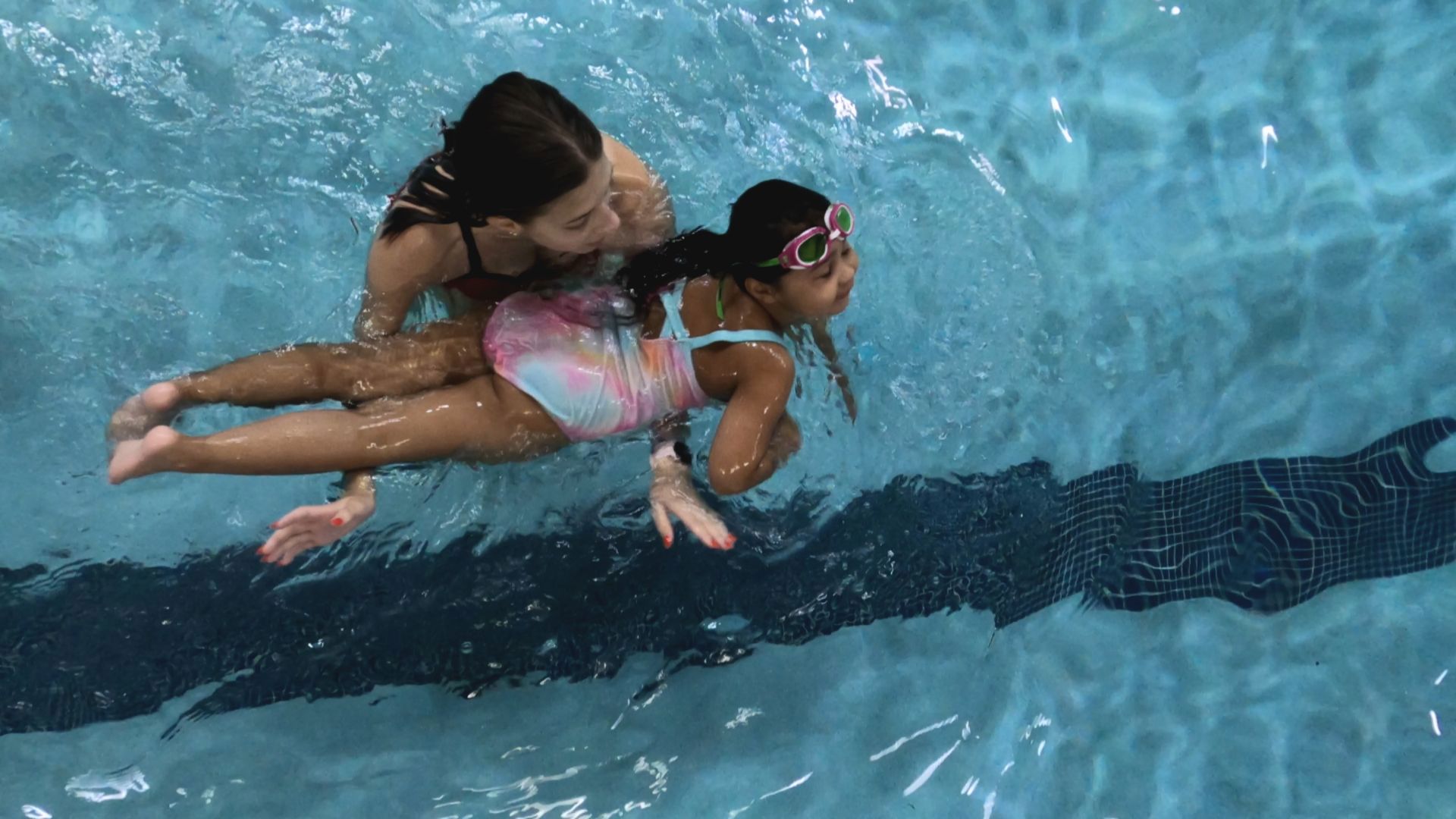AUBURN, Wash. — There's a national push to save the lives of Black and brown children by teaching them to swim. Studies show BIPOC kids are three times more likely to die from drowning than white kids.
For decades, swim lessons were for those who could afford it and had a pool nearby. That hasn't been the case for many BIPOC families.
This is why the Auburn Pool has hosted a series of free swimming lessons. At one of the lessons was 4-year-old Audrey, splashing away, kicking off a lifetime of fun in the water.
Nearby, her parents Leon Thomas and Mindy Kristek watched their daughter learn how to swim for the first time.
"When I was a kid I jumped in a swimming pool, didn't know how to swim, and almost drowned," Thomas said. "Had to be saved by the apartment manager, so I never ever wanted them to have that same experience."
Thomas explained, free lessons and community programming wasn't available where he grew up.
"Most of the kids didn't know how to swim," Thomas said. "It was an inner city environment, not a lot of options, they didn't have community programs like this there."
Swimming is a lesson that could save Audrey's life. Drowning is the number one cause of death for children one to four years old in the U.S.
According to Pool Safely, a national water safety campaign by the U.S. Consumer Product Safety Commission, Black children ages five to 14 are three times more likely to drown than white children.
These are all statistics Chezik Tsunoda became familiar with when she started her water safety nonprofit No More Under. Her nonprofit organizes and partners with dozens of school districts and communities to teach kids, especially kids of color how to swim.
"There’s informational barriers, even getting to lessons, there’s financial barriers, there’s just historical barriers that prevent people from getting in the water," Tsunoda explained.
In the 1920s and 30s, public pools and beaches were segregated by race, barring Black people from entering.
"My grandma was not allowed in the pool when she was growing up," Tsunoda said. "So many Black and brown families did not have access, and were not even allowed to go-- not only to pools but also beaches due to segregation, there's a statistic that you're only 13% likely to learn how to swim if your parent does not know how to swim. So imagine how many parents did not know how to swim due to segregation and just said stay away from the water."
Her reason for starting her nonprofit is even more personal. In 2018, she lost her 3-year-old son Yori to drowning.
"It happens more than not, where everyone thinks everyone else is watching," Tsunoda said. "It really was a case of that, at some point, Yori, was there, floating in the pool and just...we didn't have an eye."
The little boy who loved snuggles and planes, who was just learning how to swim, was gone in a second.
"It was one of those things that was 100% preventable, and I just want to make sure it doesn't happen to anyone else, because it truly doesn't have to," Tsunoda said.
Her life mission now is to protect other kids by empowering them to embrace the water.
"We’re surrounded by water, and it makes sense that we should know how to be safe around it," Tsunoda added.
Back at the Auburn pool, Audrey's father Leon is making sure a cycle is broken for his girls.
"It's literally a punchline, that Black people don’t know how to swim," Thomas said. "(My kids are) never going to be that punchline."
And as painful and difficult it is for Tsunoda to be around pools, she stood by that day, watching kids like Audrey splash away her fear. Her personal relationship with water remains a work in progress.
"I think I have other children that love water, and I do my best to take them when they really want to go," Tsunoda said. "I still just struggle a little bit. Floating for me, there's just some flashbacks still, I've been in years of therapy at this point, it's still a little not comfortable."
But moments like the one Audrey was having at the pool, remind Tsunoda of her the reason for her work.
"When I founded this organization, my whole goal was that nobody had this experience," Tsunoda said. "Because I wouldn’t wish it on anyone. The amount of impact that we’ve had, and the lives that we’ve touched, and continue to touch, it’s beyond what I ever imagined."

